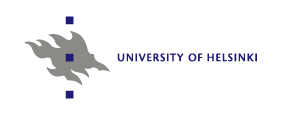Linked Open Data Science Service
Project Goals
We aim at developing a Linked Open Data Science Service for publishing and using scientific Linked Open Data in research. The service is based on the "7-star" model of the Linked Data Finland service. The project not only creates a prototype of the service but also tests and evaluates it in three case studies:
- In studying the intellectual history of Europe, as part of the Reassembling the Republic of Letters 1500-1800 project.
- In studying Finnish War history in the WarSampo project.
- In studying statistics of ornithological observations related to weather data.
In addition, interactive learning materials for publishing Linked Open Data in this setting will be created.
An overview of the project is presented in these slides.
The project is funded by the Ministry of Education and Culture and is part of the national Open Science and Research initiative.Contact Persons
Prof. Eero Hyvönen, Aalto University
Dr. Eetu Mäkelä, Aalto University
Dr. Jouni Tuominen, Aalto University
Publications
2020
Alex Kourijoki: Linkitetyn datan validointi ja korjaus. MSc Thesis (in Finnish), Aalto University, School of Science, Master’s Programme in Computer, Communication and Information Sciences, June, 2020. bib link
Mikko Koho: Representing, Using, and Maintaining Military Historical Linked Data on the Semantic Web. Dissertation, Aalto University, School of Science, Department of Computer Science, May, 2020. bib pdf link
2018
Minna Tamper, Arttu Oksanen, Eero Hyvönen: Schema.org - hakukonejättien semanttinen web (Schema.org - The Semantic Web of Search Engine Giants). Tietojohtaminen, April, 2018. bib pdf
Eero Hyvönen: Sotasampo - talvi- ja jatkosota semanttisessa webissä (WarSampo - Finnish WW2 on the Semantic Web). Tietoasiantuntija, April, 2018. bib pdf
2017
Mikko Koho, Eero Hyvönen, Erkki Heino, Jouni Tuominen, Petri Leskinen and Eetu Mäkelä: Linked Death - Representing, Publishing, and Using Second World War Death Records as Linked Open Data. The Semantic Web: ESWC 2017 Satellite Events (Eva Blomqvist, Katja Hose, Heiko Paulheim, Agnieszka Ławrynowicz, Fabio Ciravegna and Olaf Hartig (eds.)), pp. 369-383, Springer, Cham, 2017. bib pdf link
War history of the Second World War (WW2), humankind’s largest disaster, is of great interest to both laymen and researchers. Most of us have ancestors and relatives who participated in the war, and in the worst case got killed. Researchers are eager to find out what actually happened then, and even more importantly why, so that future wars could perhaps be prevented. The darkest data of war history are casualty records—from such data we could perhaps learn most about the war. This paper presents a model and system for representing death records as linked data, so that 1) citizens could find out more easily what happened to their relatives during WW2 and 2) digital humanities (DH) researchers could (re)use the data easily for research.
Petri Leskinen, Mikko Koho, Erkki Heino, Minna Tamper, Esko Ikkala, Jouni Tuominen, Eetu Mäkelä and Eero Hyvönen: Modeling and Using an Actor Ontology of Second World War Military Units and Personnel. Proceedings of the 16th International Semantic Web Conference (ISWC 2017) (Claudia d Amato, Miriam Fernandez, Valentina Tamma, Freddy Lecue, Philippe Cudré-Mauroux, Juan Sequeda, Christoph Lange and Jeff Heflin (eds.)), pp. 280-296, Springer-Verlag, Vienna, Austria, October, 2017. bib pdf link
This paper presents a model for representing historical military personnel and army units, based on large datasets about World War II in Finland. The model is in use in WarSampo data service and semantic portal, which has had tens of thousands of distinct visitors. A key challenge is how to represent ontological changes, since the ranks and units of military personnel, as well as the names and structures of army units change rapidly in wars. This leads to serious problems in both search as well as data linking due to ambiguity and homonymy of names. In our solution, actors are represented in terms of the events they participated in, which facilitates disambiguation of personnel and units in different spatio-temporal contexts. The linked data in the WarSampo Linked Open Data cloud and service has ca. 9 million triples, including actor datasets of ca. 100 000 soldiers and ca. 16 100 army units. To test the model in practice, an application for semantic search and recommending based on data linking was created, where the spatio-temporal life stories of individual soldiers can be reassembled dynamically by linking data from different datasets. An evaluation is presented showing promising results in terms of linking precision.
Eero Hyvönen, Erkki Heino, Petri Leskinen, Esko Ikkala, Mikko Koho, Minna Tamper, Jouni Tuominen and Eetu Mäkelä: WarSampo: Publishing and Using Linked Open Data about the Second World War. EuropeanaTech Insight, no. 7, Europeana, September, 2017. bib pdf link
The article overviews the system WarSampo – Finnish World War 2 on the Semantic Web, the winner of the LODLAM Challenge 2017 Open Data Prize on June 29 in Venice, Italy.
2016
Eero Hyvönen, Erkki Heino, Petri Leskinen, Esko Ikkala, Mikko Koho, Minna Tamper, Jouni Tuominen and Eetu Mäkelä: Publishing Second World War History as Linked Data Events on the Semantic Web. Proceedings of Digital Humanities 2016, short papers, pp. 571-573, Kraków, Poland, July, 2016. bib pdf link
Data about wars is typically heterogeneous, distributed in the data silos of the fighting parties, multilingual, and often controversial depending on the political point of view. It is therefore hard for the historians to get a global picture of what has actually happened, to whom, where, when, and how. We argue that Semantic Web and Linked Data technologies are a very promising approach for modeling, harmonizing, and aggregating data about war history. Our goal is to make it possible, for both historians and laymen, to study history in a contextualized way where linked datasets enrich each other. The paper presents the in-use WarSampo 1 system, where massive collections of heterogeneous data about the (Finnish) history of the Second World War are harmonized using an event-based approach, and provided as a Linked Open Data service for applications to use. As a use case, a semantic portal WarSampo providing six different perspectives to the war based on events is presented.
Mikko Koho, Erkki Heino and Eero Hyvönen: SPARQL Faceter - Client-side Faceted Search Based on SPARQL. Joint Proceedings of the 4th International Workshop on Linked Media and the 3rd Developers Hackshop, CEUR Workshop Proceedings, Heraklion, Crete, Greece, May, 2016. Vol 1615. bib pdf link
The faceted search paradigm is widely used in web applications, and there are various tools available for implementing it on the server side. In contrast, this paper presents an HTML based component tool on the client side that can be plugged on virtually any public SPARQL endpoint on the web, using only SPARQL API for data retrieval. To test and demonstrate the idea and the tool, application of the tool in a large in-use semantic portal is presented.
Mikko Koho, Eero Hyvönen, Erkki Heino, Jouni Tuominen, Petri Leskinen and Eetu Mäkelä: Linked Death - Representing, Publishing, and Using Second World War Death Records as Linked Open Data. Proceedings of the 1st Workshop on Humanities in the Semantic Web (WHiSe), CEUR Workshop Proceedings, Heraklion, Crete, Greece, May, 2016. Vol 1608. bib pdf link
War history of the Second World War (WW2), humankind s largest disaster, is of great interest to both laymen and researchers. Most of us have ancestors and relatives who participated in the war, and in the worst case got killed. Researchers are eager to find out what actually happened then, and even more importantly why, so that future wars could perhaps be prevented. The darkest data of war history are casualty records---from such data we could perhaps learn most about the war. This paper presents a model and system for representing death records as linked data, so that 1) citizens could find out more easily what happened to their relatives during WW2 and 2) digital humanities (DH) researchers could (re)use the data easily for research.
Eero Hyvönen, Erkki Heino, Petri Leskinen, Esko Ikkala, Mikko Koho, Minna Tamper, Jouni Tuominen and Eetu Mäkelä: WarSampo Data Service and Semantic Portal for Publishing Linked Open Data about the Second World War History. The Semantic Web – Latest Advances and New Domains (ESWC 2016) (Harald Sack, Eva Blomqvist, Mathieu d Aquin, Chiara Ghidini, Simone Paolo Ponzetto and Christoph Lange (eds.)), pp. 758-773, Springer-Verlag, May, 2016. bib pdf link
This paper presents the WarSampo system for publishing collections of heterogeneous, distributed data about the Second World War on the Semantic Web. WarSampo is based on harmonizing massive datasets using event-based modeling, which makes it possible to enrich datasets semantically with each others’ contents. WarSampo has two components: First, a Linked Open Data (LOD) service WarSampo Data for Digital Humanities (DH) research and for creating applications related to war history. Second, a semanticWarSampo Portal has been created to test and demonstrate the usability of the data service. The WarSampo Portal allows both historians and laymen to study war history and destinies of their family members in the war from different interlinked perspectives. Published in November 2015, theWarSampo Portal had some 20,000 distinct visitors during the first three days, showing that the public has a great interest in this kind of applications.
2015
Eero Hyvönen, Jouni Tuominen, Eetu Mäkelä, Jérémie Dutruit, Kasper Apajalahti, Erkki Heino, Petri Leskinen and Esko Ikkala: Second World War on the Semantic Web: The WarSampo Project and Semantic Portal. Proceedings of the ISWC 2015 Posters & Demonstrations Track, CEUR-WS Proceedings, Bethlehem, PA, USA, October, 2015. Vol 1486. bib pdf link
This paper initiates and fosters work on publishing Linked Open Data about the Second World War. It is argued that the heterogeneous, distributed data about the international world war history makes a promising use case for semantic technologies. We hope that by making war data openly available we can learn from the past and promote peace.


